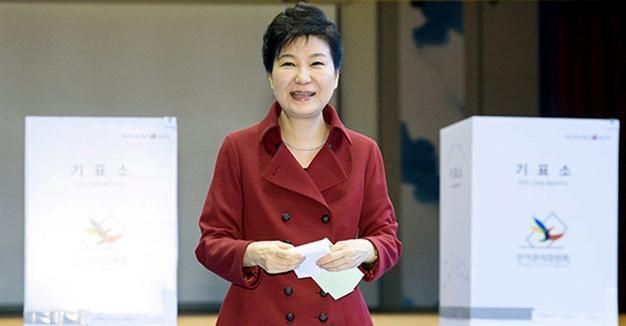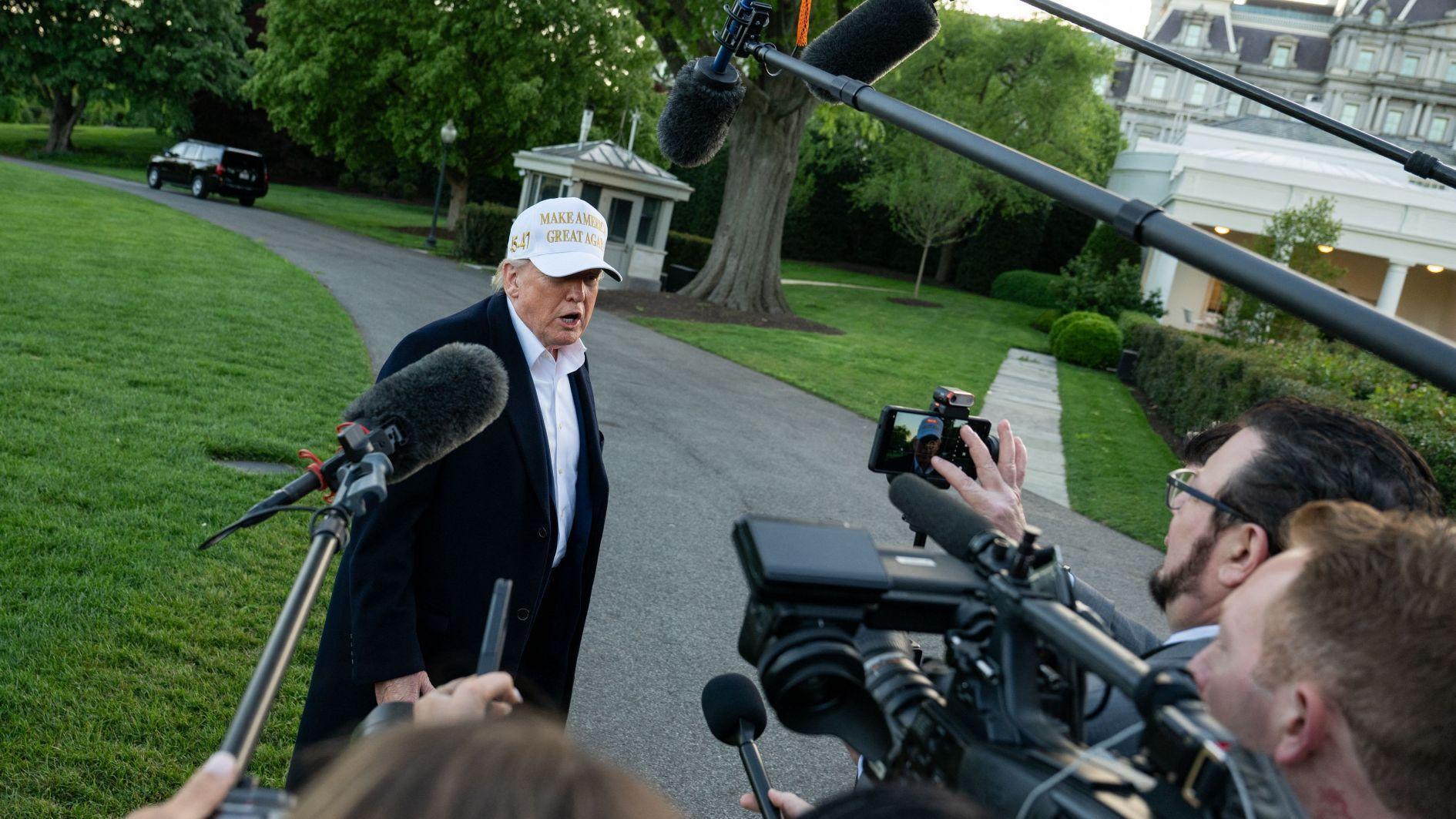South Korea’s ruling party reels from shock poll defeat
SEOUL – Agence France-Presse

South Korean President Park Geun-hye casts her ballot at a polling station in Seoul, in this handout picture provided by the Presidential Blue House and released by News1 on April 13, 2016 - Reuters photo
South Korean President Park Geun-Hye’s ruling conservative party, Saenuri, was reeling April 14 from a shock electoral defeat that broke its 16-year parliamentary majority and threatened its chances of retaining the presidential Blue House in 2017.Voters punished the party for its economic record, analysts said, with high levels of youth unemployment accounting for particularly high dissatisfaction among younger people.
The crushing defeat leaves Park, who has less than two years left of her single, five-year term, as a lame duck leader and will weaken her ability to push through her conservative agenda, including labor reforms.
Pollsters had forecast an increased majority for the Saenuri, saying its hawkish stance towards North Korea would provide an electoral boost at a time of surging military tensions with North Korea.
But provocations by Pyongyang, including a nuclear test in January and a long-range rocket launch a month later, appear to have had little effect at the ballot box.
“This is the voters’ judgement against President Park. All the pent-up anger they had about the worsening economy and widening inequality exploded in this election,” said Choi Chang-Ryul, a politics professor at Yongin University.
Political power in South Korea is firmly concentrated in the presidency and Park has fallen short on most of her key economic promises, a failure she puts down to legislative inaction.
But critics accuse her of skewed priorities, poor decision-making and a dogmatic style of leadership.
The April 13 defeat saw Park’s Saenuri Party win just 122 seats in the 300-member chamber, sharply down from the 152 it held in the last parliament.
It marked the first time since 1999 the conservative party has lost control of parliament, with the three liberal opposition parties garnering a combined 167 seats.
The main liberal opposition Minjoo Party was the largest grouping, with 123 seats.
Losing the majority would mean projects such as labor reforms that critics have said would make it easier for businesses to fire workers would likely lose steam, said Jeong Han-Wool, senior fellow at the East Asia Institute.
“This miserable poll result will also greatly hurt the party’s prospect for the 2017 presidential election,” he added.
















